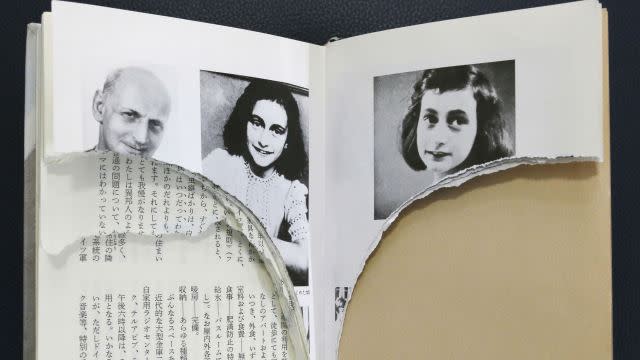Anne Frank’s diary now legally has a “co-author”

Anne Frank, legally, did not write The Diary of Anne Frank by herself. The Anne Frank Foundation—which owns the diary’s copyright—now claims that Otto Frank, Anne’s father who edited the diary after his daughter’s death, is a co-author (paywall).
If that seems like an affront to Anne’s legacy, well, it is. But it’s more complicated than a mere question of authorship.
Otto was the only member of the Frank family to survive the war. Shortly after he discovered his entire family, including Anne, had been killed, Otto recovered the diary, arranged for its publication, and created the Anne Frank Foundation in Switzerland to protect his daughter’s legacy. He died in 1980.
The copyright was set to expire next year—70 years after Anne died. But, by claiming Otto as a co-author, the foundation can extend its copyright to 2050 (70 years after Otto’s death) and prevent anyone else from publishing the diary without paying a royalty. The foundation donates about $1.5 million of the diary’s royalties every year to charities, including Unicef and a fund that supports a group of gentiles that saved Jews during the Holocaust, according to the New York Times.
Dissenters argue that these charitable donations, however genuine, are not enough to justify what they say is an unfair stranglehold over Anne’s legacy. Rachel Vorona Cote, of Jezebel, makes a good case for why the diary should be in the public domain, where it would enjoy a much larger readership:
Anne Frank ‘stays’ Anne to the extent that we continue to read her, love her. But it’s foolish to assume that her legacy can be a static one, or that one interpretation–or translation–of her diary will prevail. Reading is too fundamentally personal for that. We ought to make Anne’s words available to all who seek them, to facilitate the bittersweet joy of knowing her in one’s own way.
The public domain was created precisely so that works like Frank’s diary could eventually be read and owned, collectively, by everyone. For instance, last year, the music of Sergei Rachmaninoff, the writings of Franz Oppenheimer, and the research of Nikola Tesla all entered the public domain, 70 years after the authors’ deaths.
The Anne Frank Foundation says it only has the best interests of Anne, who has been dead for seven decades, at heart. “When she died, she was a young girl who was not even 16,” Yves Kugelmann, a member of the foundation’s board, told the New York Times. “We are protecting her. That is our task.”

Sign up for the Quartz Daily Brief, our free daily newsletter with the world’s most important and interesting news.
More stories from Quartz:

